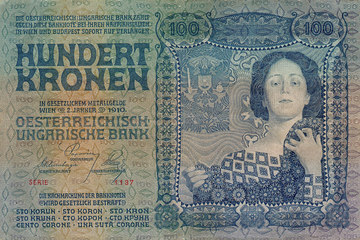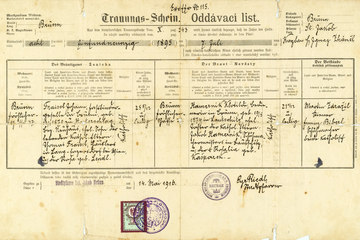Language and nationality policies
The language policies of the Habsburg Monarchy were influenced not only by the ethnic variety of the Empire, in which a large number of languages and dialects were spoken, but also by the different nationality policies of the two halves of the Empire. Hungary regarded itself as a centralist nation-state in which the groups speaking another language only enjoyed minority status. In contrast, the Austrian half of the Empire understood itself as a multinational state that applied the principle of equal treatment as laid down in the Fundamental Law of December 1967 Concerning the General Rights of Citizens, which stated: "All the races of the state shall have equal rights, and each race shall have the inviolable right of maintaining and cultivating its nationality and language."






